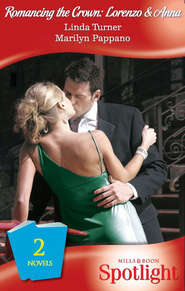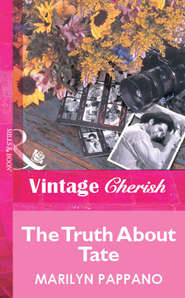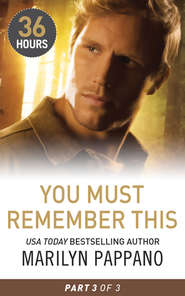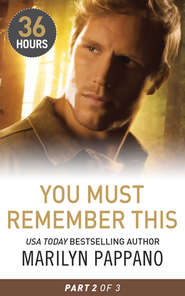По всем вопросам обращайтесь на: info@litportal.ru
(©) 2003-2025.
✖
You Must Remember This
Автор
Год написания книги
2019
Настройки чтения
Размер шрифта
Высота строк
Поля
She locked her purse in the bottom desk drawer, picked up her coffee cup and headed for the machine in the outer room. Once the cup was filled, she stopped at Stone Richardson’s desk. The detective was typing a report and grumbling under his breath. He sat back in his chair. “What can I do for you?”
“I talked to Martin Smith last night. He said you guys did a missing persons broadcast right after his accident.”
“Yeah. We got a couple of possible hits, but they didn’t pan out. You have an idea?”
“I’d like to do it again. Maybe, at that time, no one was aware that he was missing, but surely after ten months, someone has realized that something’s wrong.”
“Good idea. The file is in your office. Go to it.”
With a smile of thanks, she took the coffee back to her office, pulled the folder and pulled up the National Crime Information Center on her computer.
She was working on the required state certification as an NCIC terminal operator, along with her other duties, but she’d been granted access in the meantime. It was slow going, though. Ditzy Mariellen, whose desk sat right outside the door, could have the information typed in and the broadcast sent in the time it would take Juliet to thumb through the manual that would help her locate and fill out the proper form.
But she didn’t hand the file to Mariellen. She opened it and studied Stone’s notes. A John Doe white male, approximately forty years of age, six-three, blond and blue. Not much of a description for the best-looking man she’d come across in recent memory. There were notes on the scars—six in all, the last attributed to a burn—but no other identifying marks, no tattoos, no birthmarks. Of course, six scars were enough.
He feared he’d lived a violent life, and the evidence seemed to be on his side. Innocent people did become victims, but three times, possibly four?
She just couldn’t imagine him as a criminal. And why not? Because he was handsome? A quick look through the mug books would confirm that handsome men did, in fact, commit crimes. Because he seemed so lost? She couldn’t call any figures to mind at the moment, but she suspected that lost, lonely people were more likely to commit crimes than happy, well-adjusted people with everything going their way. Because she was attracted to him? Heavens, she’d been attracted to losers before. The last man in her life had been unethical and immoral. Criminal was just one short step down.
Still, she didn’t believe Martin Smith had been a criminal before his accident. Even if he had been, he was a different man now. People could change. Wasn’t waking up a new person one of her favorite fantasies? With his accident last summer, Martin had been given the perfect opportunity to start over new, with no name, no memories and no past to haunt him. He could be anyone he wanted to be, could correct old mistakes and make right bad choices. It could be a dream come true.
The questions were the only downside. To fully accept and enjoy his new life, he had to know about his old life. Were there parents who missed him, a wife who mourned him, children who were slowly forgetting him? Or had he been alone, with no one to care?
They would find out soon enough. A loving family surely would have turned to the police for help when he failed to return from his trip. Surely they would be searching for him, distributing flyers, setting up social networking pages, showing photographs, asking questions. Surely there would be a response to this broadcast she was about to send to every law enforcement agency in the country.
And if there wasn’t?
Then he was more than likely a free man, free to make a new life for himself. The odds of him including her in it, even temporarily, weren’t great, but she could always dream, couldn’t she?
Chapter Three
The Courthouse Deli was located across the street and down a block from the police department. It was busy from noon to one, but after that a diner looking for privacy couldn’t find a better place. Bringing along official-looking reading and choosing a table in the distant corner helped keep most people away…but Martin wasn’t most people.
He walked past two dozen empty tables to the back, stopping beside the empty chair. “Mind if I join you?”
Juliet looked surprised but didn’t say a word as he slid into the chair and folded his hands together on the table. “They told me over at the department that you usually eat lunch here.” A simple statement that wasn’t entirely true. One of the dispatchers had told him that—a week ago—and she’d said “always.” She always eats at the deli and sits in the back facing the wall to discourage anyone from noticing her. The only problem with that was that he wasn’t so easily discouraged and she was far from unnoticeable.
“That doesn’t look like light reading.”
She glanced down at the newsletter. “It’s about the new computer system. Once it’s up and running, it’ll offer better versions of everything—image processing, automated single fingerprint matching, new databases, linkage fields and automated statistical collection. With the equipment that will be available in the patrol cars, an officer in the field is able to take photographs and scan a single fingerprint, then send them to the bureau and have a response back so much faster. It will be—” She broke off abruptly and shrugged. “A big improvement. Grand Springs will finally catch up with the big cities.”
For a moment there she had been supremely confident, as she should be. The instant the thought had occurred to her, though, that she might be talking too much, the confidence had faded away with the words. Too bad.
“So part of your job is getting the Grand Springs PD up to speed for this new system.”
She nodded.
“It can’t be easy. Some of those guys hate change.”
“Once they realize how much easier the system makes their job, they’ll love it.” She fell silent while the waitress came to take his order, then said, “I sent out another missing persons broadcast this morning. Maybe we’ll get somewhere this time.”
“How long will that take?”
“I don’t know. I’m still pretty new at this.”
Stone had told him the last time that a positive response was difficult to predict. It could take a few hours or, if a department was really swamped, a few months. If there was no missing persons report out there that matched his description, there would be no response at all. That had been hard enough to face ten months ago. It would be even harder now, finding out that he’d been the kind of person who could simply disappear from the face of the earth and no one cared.
The suspicion that he’d been exactly that kind of person made him uneasy. Deliberately he changed the subject. “Did you work in law enforcement in Dallas?”
“No. I worked for a large corporation that had its fingers in a little bit of everything. I set up their systems, wrote programs specific to their needs and kept everything running. When this position came up, I applied and was hired. The library job seemed okay, but the police department job sounded ex—interesting.”
Exciting. To a computer genius who spent more time with machines than people, even the fringes of police work probably did sound exciting. “Is it interesting?”
“It beats cataloguing library books.” She said it with a smile, too light and sweet for the likes of him. He stared at her until it faded, until her blue gaze dropped away from his and familiar discomfort came into her manner.
The waitress served their meal. After scraping the lettuce from her sandwich, Juliet asked, “Did you get some sleep this morning?”
Such an innocent question to spark such intimate images linked one to another: sleep, bed, Juliet, naked, hot, needy, desperate. Fumbling for his glass, he took a drink, swallowed hard and blinked to clear his vision. “Yes.” He had spent half the night pacing his apartment and the other half roaming the streets. He’d had a glass of milk at the all-night diner—the cook’s remedy for insomnia—and walked until he was exhausted. He’d needed the ride she’d given him—had been half asleep before it was over—and had slept the sleep of the dead the rest of the morning.
All because last night he had dreamed the dreams of the dead.
“Have you had insomnia since the accident?”
His throat was still tight, his voice still husky. “I don’t have insomnia.”
“But this morning you said you couldn’t sleep.”
And she had assumed, as everyone else did, that by couldn’t, he meant physically unable to. That was what he wanted them to think, wasn’t it? “I wouldn’t let myself fall asleep last night.” His tone was halting, his gaze fixed on his hands. They were familiar, yet strange. Long fingers, callused skin, strong grip, capable of all the things hands were designed for and maybe more. Capable, maybe, of inflicting great pain, of stealing someone else’s very life. “Sometimes I have dreams….”
She leaned forward, and her voice brightened, as if the subject had suddenly become ex—interesting. “About your past?”
“I think so. I don’t know. Maybe not.” Please, God, no.
“What kind of dreams?”
“Just dreams.”
“You don’t remember them?”
His silence let her believe one answer, but the truth was completely different. He remembered too much. Not enough.
“Are you in these dreams?”
“Look, I’d rather not—”
“But they may be important. Maybe the key to your memory is in these dreams, Martin.”
It was the first time she’d said his name. Such a plain, simple name, serviceable but nothing special. But it sounded special in her voice. “Look, they’re just dreams, nothing more. They don’t mean anything. They’re not important.”











